Future of Artificial Intelligence in Business – Make Your Business Powerful
Artificial Intelligence (AI) has rapidly evolved from a theoretical concept to a practical tool that is reshaping industries across the globe. Additionally, In the realm of business, AI is revolutionizing operations, decision-making, and customer interactions. As we look ahead, the future of AI in business promises even greater advancements and opportunities. “Explore the cutting edge Future of Artificial Intelligence in business. Leverage AI-powered solutions for insightful analysis of customer data and revolutionize your marketing strategies. Stay ahead in the age of AI-driven innovation.” Additionally, This article explores the key trends and implications that will define the future of AI in the business landscape.
I. Enhanced Automation and Efficiency
A. Intelligent Process Automation As Future of Artificial Intelligence In Business
Intelligent process automation( ipa) uses ai and machine education to automate complex business tasks. Unlike regular automation, ipa systems can learn and make opinions on their own without specific programming. This makes them able of handling a wider variety of tasks, which is really helpful for making marketing processes more effective.
Using IPA helps businesses cut down on manual work for repetitive tasks. For example, in finance, AI-powered bots can handle things like processing invoices, managing expenses, and even making routine financial decisions. This not only saves money on day to day operations but also lets people focus on more important, creative jobs.
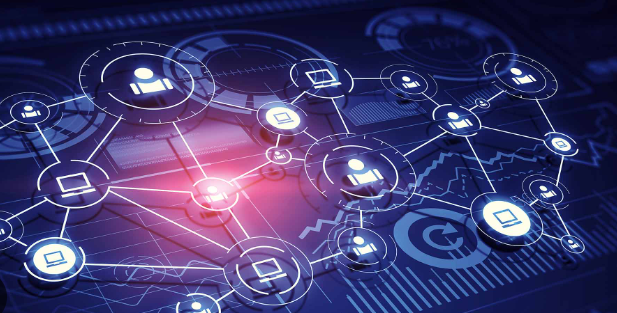
B. Hyper-Personalization As Future of Artificial Intelligence In Business
Hyper-personalization is like having a super-smart helper in marketing. It uses really smart computer programs to look at a whole bunch of information about customers, like what they look at online, what they buy, and what they talk about on social media. Then, it uses all that info to make special and personalized experiences for each customer. For example, if you’re shopping online, it can suggest things you might like based on what you’ve looked at before. This makes your shopping experience feel extra special. It also makes it more likely for you to buy things and come back again in the future.

C. Predictive Analytics As Future of Artificial Intelligence In Business
Prophetic analytics is like having a demitasse ball for businesses. It uses really smart calculation formulas to guess what might be in the future, like what people will buy or what will be popular.
For example, in stores, it can use this smart calculation to know exactly how important of each product to have so they do nt run out or have too important leftover.
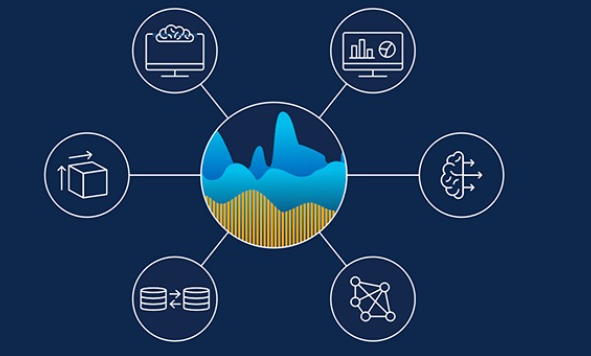
II. Augmented Decision-Making
A. Data-Driven Insights As Future of Artificial Intelligence In Business
Think of all the information that businesses have to deal with nowadays. It’s a lot, and it can be really hard to figure out. That’s where AI comes in. It’s like having a super brain that’s really good at sorting through tons of data and finding the important stuff.
For instance, in hospitals, AI can look at a patient’s information and help doctors figure out what might be wrong and how to treat it. By looking at things like medical records and test results, AI can give doctors really helpful advice to make sure patients get the best care possible.
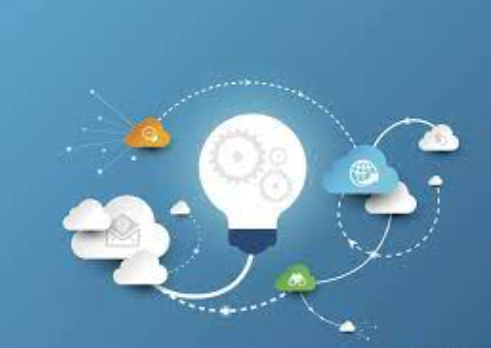
B. AI-Enabled Strategy Formulation As Future of Artificial Intelligence In Business
AI is getting a big help in making important business opinions. The ai- powered aesthetics at effects like whats popular in the market, how people are buying effects, and what the competition is doing. This helps businesses figure out the stylish ways to run effects.
For example, in finance, ai can look at the stock market and snappily figure out what might be a good investment. Moreover, this helps financial companies make smart choices and adjust their investments as things change. Additionally, customer data is also protected.

C. Risk Mitigation As Future of Artificial Intelligence In Business
Ai is really good at spotting patterns and unusual effects, which makes it great for figuring out and avoiding pitfalls. Moreover, ai- powered keeps a close eye on data and can snappily tell if commodity doesn’t look right.
For instance, in keeping computer systems safe, AI can watch how information moves around and notice if there’s something strange happening. Moreover, This means it can give a warning before a cyber attack actually happens, stopping it in its tracks. However, customer data is protected.
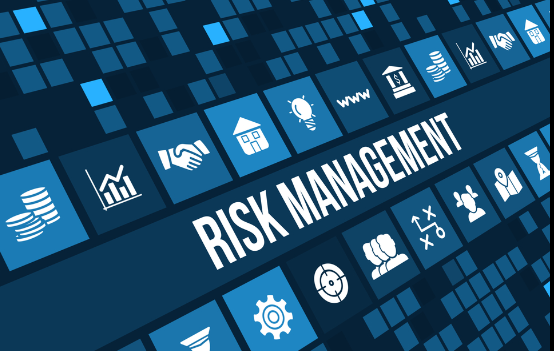
III. Transformative Customer Experiences
A. Conversational AI and Chatbots As Future of Artificial Intelligence In Business
Conversational ai, which uses natural language understanding, lets businesses offer round the timepiece client support that feels smooth and natural. Moreover, Chatbots can chat with customers right away, answering questions and helping out. However, customer data is secured.
For example, in hospices, they can use ai- powered chatbots to handle guest questions, book apartments, and indeed suggest effects to do around the area. Moreover, this ai- powered makes guests feel taken care of, and it also helps the hostel run effects easily.
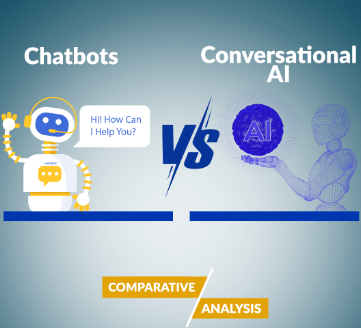
B. Personalized Marketing Campaigns As Future of Artificial Intelligence In Business
AI is like a super-smart assistant for businesses when it comes to marketing. Marketing helps them make ads and messages that really speak to the right people. Moreover, by looking at what clients like and do, businesses can transfer them stuff that’s just right for them.
For example, if you’re shopping for clothes online, ai can suggest outfits that match your taste and what you’ve looked at before. Moreover, this marketing makes shopping further fun and makes you more likely to find something you love.

C. Emotional Intelligence in Customer Interactions As Future of Artificial Intelligence In Business
Ai is getting really good at understanding and replying to how people feel. It can read and understand the emotions behind what people say or write. Moreover, this helps businesses give responses that match how their clients are feeling.
For example, in client service, if someone seems worried, the ai can respond in a way that comforting. However, it can celebrate with them, if someone is happy. Moreover, this makes talking to a business feel more like talking to a real person who understands how you feel. It makes the whole experience better for customers.
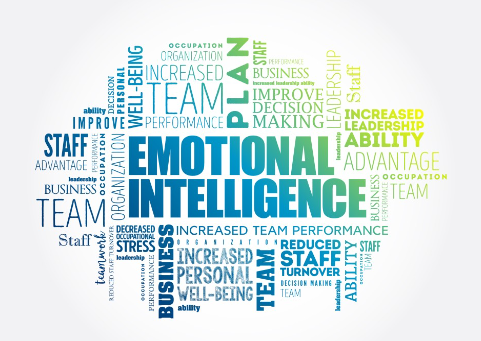
IV. Ethical and Responsible AI Implementation
A. Bias Mitigation and Fairness As Future of Artificial Intelligence In Business
As ai learns from once information, it might pick up illegal impulses from that data. So, it’s really important for businesses to be aware of this and fix any biases in the AI’s programming. Moreover, This way, everyone gets a fair chance.
For instance, in hiring, if the AI uses data from the past, it might accidentally favor certain groups over others. Additionally, Businesses need to be careful in setting up the AI to make sure it treats everyone equally. Moreover, this helps create a workplace that’s fair and welcoming for everyone.
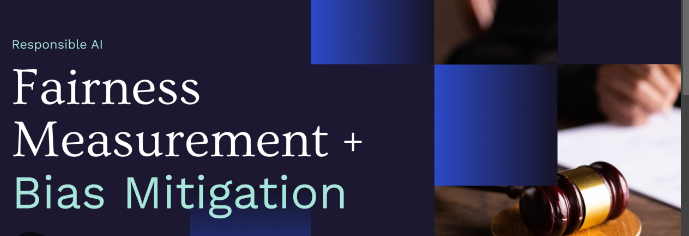
B. Transparency and Accountability As Future of Artificial Intelligence In Business
Businesses deploying AI systems must be transparent about their use and how decisions are made. Moreover, This includes providing clear explanations of AI-driven outcomes and establishing accountability for those outcomes. However customer data is protected.
Additionally, In financial services, for instance, when AI is used to assess creditworthiness, it is crucial that customers understand how their creditworthiness was determined and have recourse if they disagree with the decision.

C. Data Privacy and Security As Future of Artificial Intelligence In Business
Moreover, With the increasing reliance on AI, safeguarding sensitive information is paramount. Additionally, Businesses must implement robust cybersecurity measures to protect customer data from breaches and unauthorized access.
Moreover, In healthcare, where AI is used to analyze patient data, compliance with data protection regulations such as HIPAA (Health Insurance Portability and Accountability Act) is essential to ensure patient privacy and confidentiality.

V. Continuous Learning and Adaptation
A. Lifelong Learning Models As Future of Artificial Intelligence In Business
AI systems that continuously learn and adapt to new information and environments are becoming increasingly valuable. Additionally, These models can evolve over time, improving their performance and effectiveness.
For example, in autonomous vehicles, AI systems continually learn from real-world driving scenarios, enabling them to make better decisions and respond to complex traffic situations.
B. Agile AI Development As Future of Artificial Intelligence In Business
In the fast-paced world of business, agility is crucial. Agile AI development practices involve rapid prototyping, testing, and deployment of AI solutions. Moreover, This iterative approach allows for quick refinement based on real-world feedback.
For example, in e-commerce, businesses may use agile AI development to optimize recommendation algorithms based on customer feedback and behavior.
C. Human-AI Collaboration As Future of Artificial Intelligence In Business
The most effective AI systems are those that work in synergy with human intelligence. Additionally, By leveraging the strengths of both AI and human workers, businesses can achieve optimal performance.
In manufacturing, for instance, AI-powered robots can handle repetitive and dangerous tasks, while human workers focus on tasks that require creativity and critical thinking.
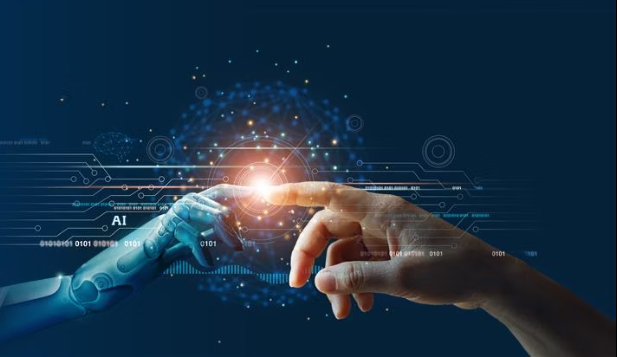
Examples
I. Enhanced Automation and Efficiency
A. Intelligent Process Automation
- Customer Service Chatbots: Airlines like KLM use AI-powered chatbots to handle customer inquiries about bookings, baggage, and flight information, providing real-time assistance without human intervention.
- Invoice Processing: Companies like SAP Concur employ AI to automatically process invoices, extracting relevant information, and inputting it into financial systems, reducing manual data entry.
B. Hyper-Personalization
- Netflix Recommendation Engine: Additionally, Netflix uses AI algorithms to analyze viewing habits and preferences to offer personalized movie and TV show recommendations to each user.
- Spotify’s Discover Weekly: Spotify employs AI to curate personalized playlists for users based on their listening history, introducing them to new music they’re likely to enjoy.
C. Predictive Analytics
- Amazon’s Demand Forecasting: Amazon uses AI-driven predictive analytics to forecast customer demand for products. Additionally, This helps them optimize inventory levels and plan for seasonal spikes.
- Healthcare Diagnoses: IBM’s Watson for Oncology analyzes medical literature, patient records, and clinical trial data to help oncologists make personalized treatment recommendations.
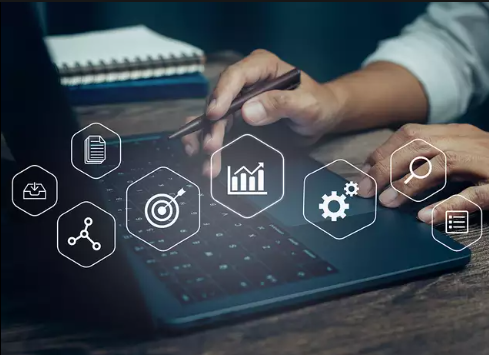
II. Augmented Decision-Making
A. Data-Driven Insights
- Google Analytics: Moreover, This tool utilizes AI to provide businesses with detailed insights into website traffic, user behavior, and conversion rates, helping them make data-driven decisions.
- Weather Forecasting: Additionally, The Weather Company, an IBM subsidiary, uses AI and machine learning to process vast amounts of weather data, providing accurate and timely forecasts.
B. AI-Enabled Strategy Formulation
- Marketing Campaign Optimization: Adobe’s AI-powered platform analyzes customer data to optimize marketing campaigns by identifying the most effective channels, messaging, and timing.
- Financial Trading Algorithms: Hedge funds and investment firms use AI-driven algorithms to make split-second trading decisions based on market data and patterns.
C. Risk Mitigation
- Fraud Detection in Banking: Banks employ AI to analyze transactions and detect patterns indicative of fraudulent activity, allowing for real-time intervention and prevention.
- Cybersecurity Threat Detection: Moreover, Companies like Darktrace use AI to monitor network traffic for anomalies, identifying potential cyber threats before they can cause harm.

III. Transformative Customer Experiences
A. Conversational AI and Chatbots The Future of Artificial Intelligence
- Healthcare Triage with Babylon Health: Babylon’s AI-powered chatbot helps users assess their symptoms, providing healthcare advice and directing them to appropriate services.
- Virtual Personal Assistants: Moreover, AI-driven personal assistants like Siri, Google Assistant, and Alexa provide users with hands-free access to information, entertainment, and productivity tools.
B. Personalized Marketing Campaigns
- Recommendations in E-Commerce: Amazon’s recommendation engine suggests products based on browsing and purchase history, increasing cross-selling and upselling opportunities.
- Email Marketing Optimization: Moreover, Ai-powered tools like Phrasee use natural language processing to optimize email subject lines and content for better engagement and conversion rates.
C. Emotional Intelligence in Customer Interactions
- Emotion Recognition in Call Centers: AI can analyze vocal cues to determine customer emotions during calls, helping agents tailor their responses for better customer satisfaction.
- Virtual Mental Health Support: Moreover, Apps like Woebot use AI to provide mental health support through conversational therapy, offering empathy and guidance to users.
Additionally, These examples demonstrate the diverse applications of AI across industries, showcasing how it’s transforming operations, decision-making, and customer interactions in the business landscape.
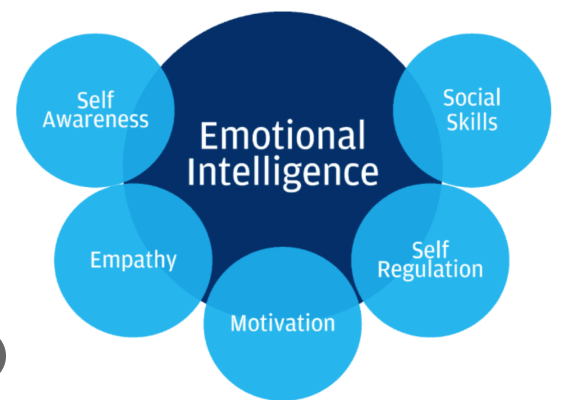
Conclusion
The future of AI in business is marked by unprecedented levels of automation, intelligence, and personalization. Moreover, As AI technologies continue to advance, businesses that strategically adopt and integrate them into their operations will gain a significant competitive edge. However, it is imperative that ethical considerations and responsible AI practices remain at the forefront of this transformative journey. Additionally, customer data is completely secured. By embracing the potential of AI while maintaining a human-centric approach, businesses are poised to thrive in the evolving landscape of tomorrow.
